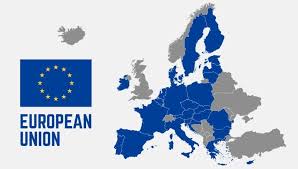
The European Union (EU) has announced a humanitarian aid package of €1.9 billion for 2025, with €510 million specifically allocated for Nigeria and other countries in sub-Saharan Africa. This significant funding commitment aims to address escalating humanitarian challenges projected to affect over 300 million people globally within the year.
According to a statement from the European Commission on Thursday, the funds allocated for sub-Saharan Africa will be distributed across the most vulnerable regions, including West and Central Africa, the Sahel, the Lake Chad Basin, North-West Nigeria, Central Africa, the Great Lakes region, and the Greater Horn of Africa. These areas have been ravaged by armed conflicts, food insecurity, and the adverse impacts of climate change.
Hadja Lahbib, EU Commissioner for Equality, Preparedness, and Crisis Management, emphasized that while financial aid is critical, it is not sufficient without adherence to international humanitarian law. She stressed the importance of safe and unhindered access to affected populations, adding that this year’s funding underscores the EU’s commitment to remaining a leading global donor. Lahbib noted that the funding will enable key humanitarian organizations, including UN agencies, the Red Cross/Red Crescent, and local organizations, to deliver life-saving aid to those in greatest need.
Nigeria, a focal point of the allocation, has been grappling with a series of humanitarian crises, particularly in the Lake Chad Basin, where conflict and displacement have severely disrupted lives and livelihoods. This funding is expected to alleviate some of these challenges by providing support in areas such as food security, healthcare, and protection for displaced populations. However, these funds are only a fraction of what is needed to resolve the mounting crises across the region.
The humanitarian aid is part of the EU’s global strategy to address crises worldwide. Other regions will also receive substantial funding. For the Middle East and North Africa, the EU has allocated €470 million, with €375 million designated for the Middle East, including Gaza, and €95 million for North Africa and Yemen. Ukraine and Moldova will receive €148 million, with €140 million earmarked for Ukraine’s war recovery efforts and €8 million for Moldova.
Latin America and the Caribbean are set to receive €113 million, which will target crises in Venezuela, Colombia, Haiti, and other conflict zones, while Asia and the Pacific will get €182 million for issues in Myanmar, Bangladesh, Afghanistan, and other regions. An additional €40 million has been reserved for Southern Africa, the Indian Ocean, Southern Caucasus, and Central Asia.
To address unforeseen emergencies, €295 million has been set aside, alongside €110 million for innovative projects and capacity building aimed at enhancing long-term resilience in humanitarian responses.
This strategy builds on the EU’s history of humanitarian interventions in over 110 countries since 1992, making the European Commission a cornerstone of global relief efforts.
While the funding highlights the EU’s commitment to addressing global humanitarian needs, persistent challenges threaten to undermine the effectiveness of these interventions.
For sub-Saharan Africa, the situation is dire. Violent conflicts, particularly in Nigeria, continue to displace millions, leaving them without access to essential services. Food insecurity remains a critical issue, worsened by climate events like flooding and droughts, which disrupt agricultural production and amplify the suffering of vulnerable populations. Insecurity and logistical difficulties further complicate the ability of humanitarian agencies to reach those in need.
This latest allocation reflects growing concerns about the widening gap between humanitarian needs and available funding. Critics have argued that donor attention tends to focus disproportionately on high-profile crises, leaving less-publicized emergencies underfunded. The EU’s decision to reserve funds for unforeseen emergencies and capacity-building projects represents a step toward addressing this imbalance.
As the 2025 fiscal year unfolds, ensuring the effective distribution of aid will require strengthened partnerships among governments, donor organizations, and local stakeholders. In regions like Nigeria, where humanitarian needs are acute, coordinated efforts are crucial to maximize the impact of the funding. The EU’s commitment to empowering local organizations and fostering accountability may prove pivotal in addressing these challenges.
However, questions linger over whether this aid package, while substantial, will be enough to alleviate the growing crises. Humanitarian actors have called for a more sustainable approach that combines immediate relief with long-term solutions to systemic problems such as poverty, governance, and environmental degradation. The funding alone, many argue, cannot reverse years of neglect and underinvestment in vulnerable regions.
For Nigeria and other sub-Saharan African nations, the EU’s allocation offers a lifeline amid an uncertain future. The focus now shifts to the efficient use of these resources and the broader international community’s role in supporting a sustainable recovery.
With the number of people in need continuing to rise, the EU’s initiative underscores the urgent need for a collective and coordinated global response to the world’s most pressing humanitarian challenges.



